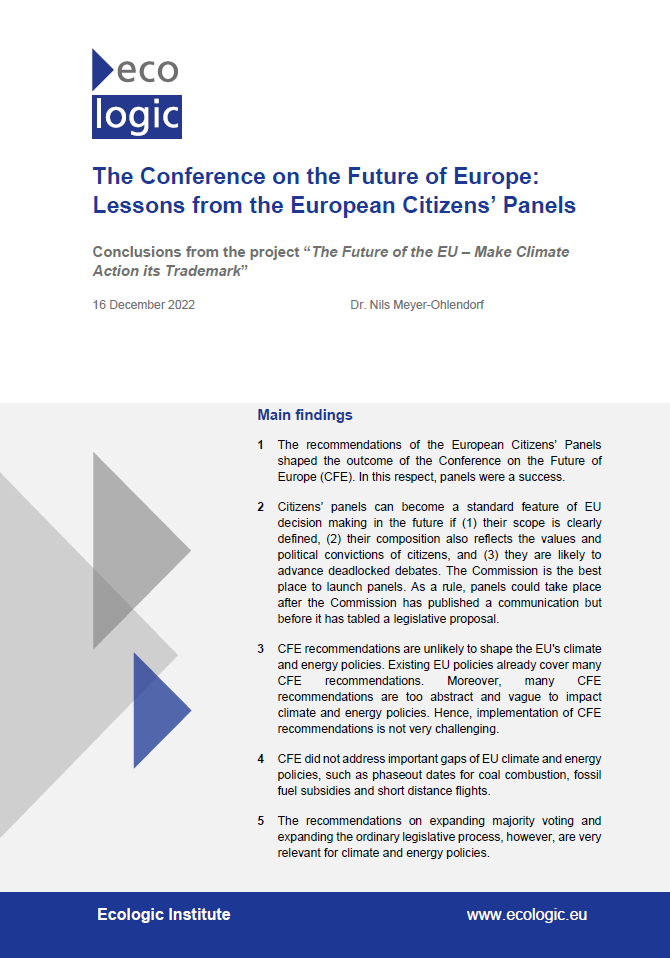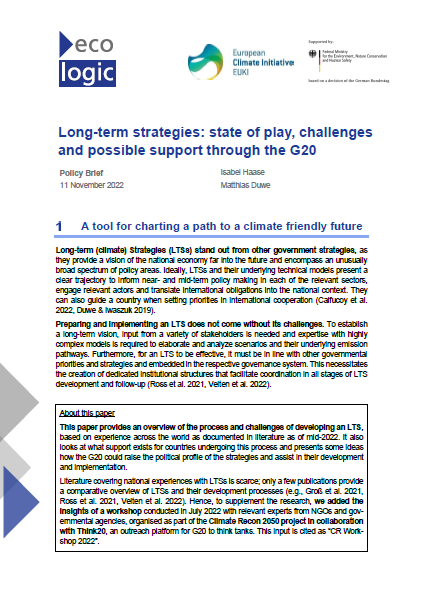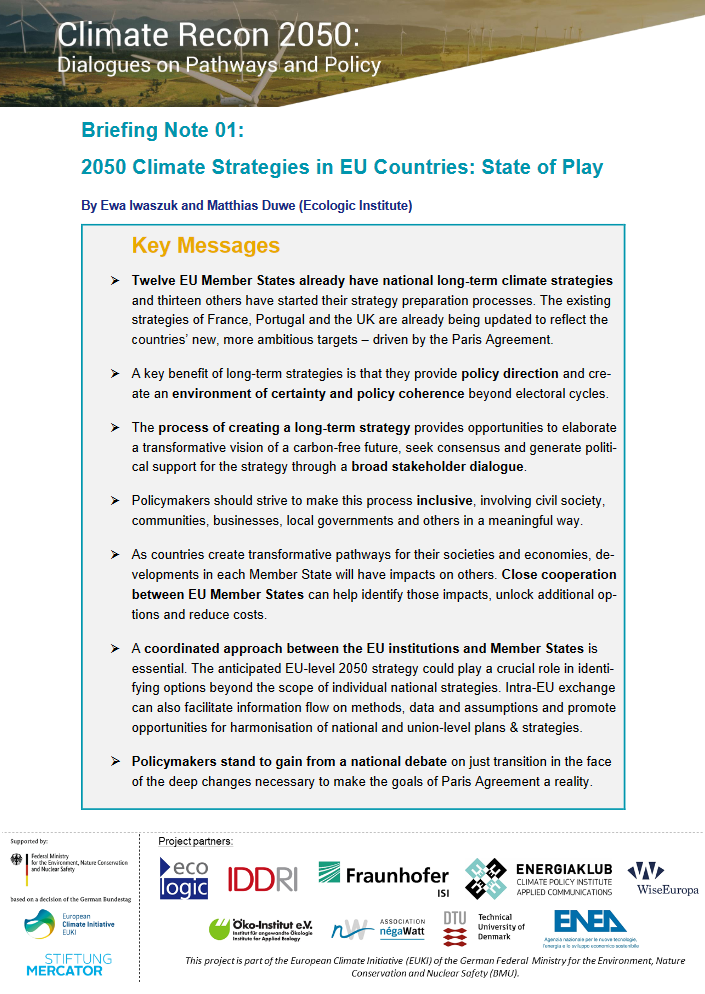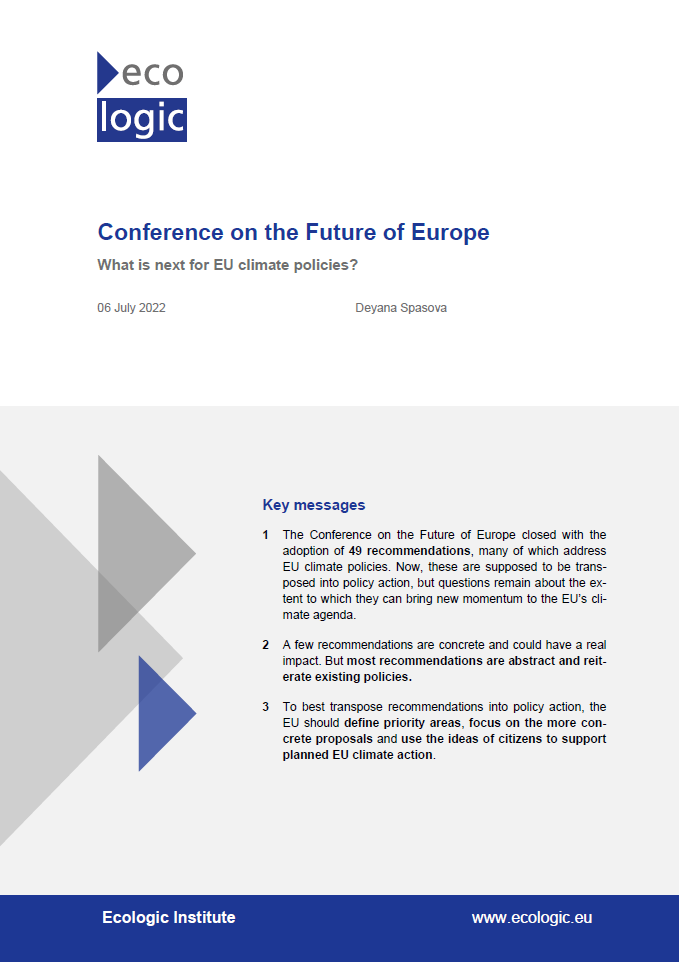Long-Term Strategies Assessment of the Visegrád Group Countries
- Publication
- Citation
Kobylka, Krzysztof; Laskowski, Kamil; Śniegocki Aleksander (Wise Europa) 2022: Long-Term Strategies Assessment of the Visegrád Group Countries. WiseEuropa: Warsaw.
Comparative analysis of the long-term strategies in Czechia, Hungary, Poland and Slovakia finds both commonalities as well as significant differences. The strategies in their current form represent an initial guide for each national transformation pathway towards a net-zero economy in the EU, but will benefit from further specification along the way. There is also presently no evidence of cross-border thinking or a search for joint solutions in the strategies. The publication identifies best practices and weaknesses of these strategies. The analysis has been conducted within the framework of the Climate Recon 2050 project, which is led by Ecologic Institute.
The creation of an adequate economy-wide climate strategy is crucial from the point of planning and governance of climate policy in individual countries over a longer period of time. The objective of a long-term climate strategy is to demonstrate a holistic economic perspective, to bind detailed sectoral strategies exhibiting the state of the economy in relation to climate ambitions and to present the relative effort needed in individual sectors, sectoral interdependencies and the distribution of enabling policies and measures. EU Member States have been obliged to develop national long-term climate strategies by 1 January 2020, although not all countries have met that deadline. At the time of publication in January 2022, 22 of 27 national strategies have been submitted to the European Commission.
In this report, the focus is on the four members of the so-called Visegrád Group – namely Czechia, Hungary, Slovakia, and Poland. The V4 is a formal alliance formed in 1991 that today serves as a platform for sharing best practices regarding membership in the EU and debating current issues, as well as advancing cooperation in sectors including science, economics, and energy. The Visegrád countries presents moderately similar approaches to the LTS development, creating documents based on quantitative economy-wide models. However, the documents differ in the degree of detail of the individual parts and in their structure. The quality of the documents is also affected by the date of their adoption: Poland (draft) or Hungary may have benefited from a late adoption, having had more time and feedback from earlier strategies.
During the Polish Presidency in 2020-2021, the V4 countries announced their intention to pursue more intense collaboration within the energy sector, including a common position at the EU level concerning the Just Transition in coal regions and a regulatory framework for the natural gas market. Therefore, this comparative analysis of individual long-term strategies is a good point of reference for further discussions in the Visegrád Group, in the region of Central and Eastern Europe and the entire European Union. Based on the findings, the analysis also provides guidelines for future updates of long-term strategies, necessary in light of the EU’s updated goals to reach climate neutrality goal in 2050 and reduce emissions by 55 % until 2030.
The Polish strategy itself was not formally published at the time of writing, but quantitative modelling inputs were made available to the authors at WiseEuropa for the purposes of this comparative analysis.



